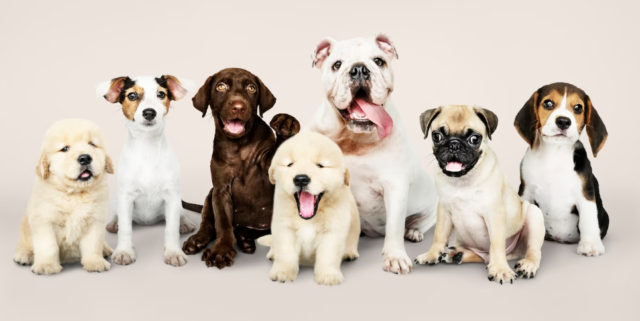Chihuahua Overview
Chihuahua Highlights
Chihuahuas are small dogs with big personalities. They are known for their small size and lively temperament, making them popular chihuahua pets for many people around the world.
Chihuahua History
According to legend, the Chihuahua breed, which originated in Mexico, has its roots in the Techichi, a companion dog owned by the ancient Toltec civilization. The state of Chihuahua in Mexico, where they were subsequently discovered, gave them their name.
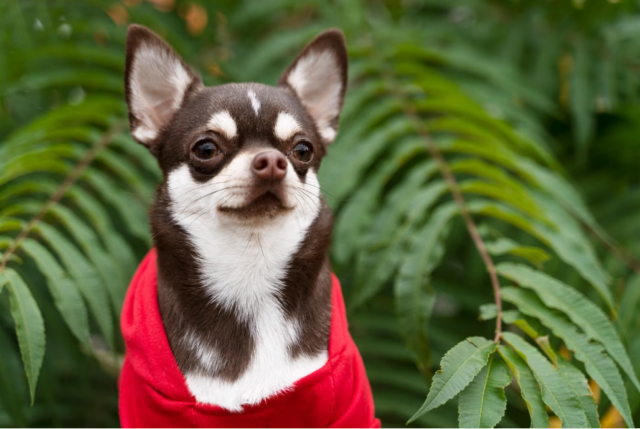
Chihuahua Size
One of the smallest dog breeds, chihuahuas generally weigh 2 to 6 pounds. They have a compact body and come in two coat varieties: smooth coat and long coat.
Chihuahua Personality
Chihuahuas are little dogs with enormous personalities. They are often confident, alert, and highly spirited. They are known to be loyal and protective of their owners, making them excellent companions.
Chihuahua Health
Like any breed, chihuahuas may be susceptible to certain health problems. Some common health concerns for Chihuahuas include dental problems, heart disease, obesity, and patellar luxation. Regular veterinary check-ups are important to ensure their well-being.
Chihuahua Appearance
Chihuahuas have a distinct appearance with their apple-shaped heads and large, expressive eyes. They have a compact body, erect ears, and a tail that can be either curled or straight, depending on the individual.
Chihuahua Temperament
Chihuahuas are known for their lively and sometimes sassy temperament. They can be quite protective and may show a strong attachment to their owners. They must be socialized and trained from an early age in order to develop into well-mannered and self-assured canines.
Chihuahua Living Needs
Chihuahuas can adapt well to different living environments, including apartments. They are generally indoor dogs and thrive in a loving and secure home environment. They enjoy being close to their owners and may not do well when left alone for long periods.
Chihuahua Life Span
On average, Chihuahuas have a lifespan of 12 to 20 years. With proper care, a healthy diet, regular exercise, and routine veterinary check-ups, Chihuahuas can live a long and happy life.
Chihuahua Care
Taking care of a Chihuahua involves several important aspects, including feeding, grooming, and socialization.
Chihuahua Feeding
Proper nutrition is crucial for the overall health and well-being of a Chihuahua. It’s important to provide them with a balanced diet that suits their age, size, and activity level. Consulting with a veterinarian can help determine the best diet for your Chihuahua.
Chihuahua Coat Color And Grooming
Chihuahuas come in a variety of coat colors and patterns. The smooth coat variety has a short and glossy coat, while the long coat variety has a soft and flowing coat. Grooming needs vary between the two varieties but generally involve regular brushing, occasional bathing, and nail trimming.
Chihuahua Children And Other Pets
Chihuahuas can get along well with children and other pets if they are properly socialized from a young age. Early and positive interactions can help them develop good relationships and prevent any potential issues.
Chihuahua Rescue Groups
There are various rescue groups dedicated to Chihuahuas, offering opportunities to adopt and provide a loving home to these dogs in need. Contacting local rescue organizations can be a great way to find a Chihuahua that needs a forever home.
Chihuahua Breed Organizations
Breed organizations are an excellent resource for Chihuahua owners and enthusiasts. They provide information on responsible breeding practices, health screenings, and events dedicated to the breed. Connecting with these organizations can help you stay informed and connected within the Chihuahua community.
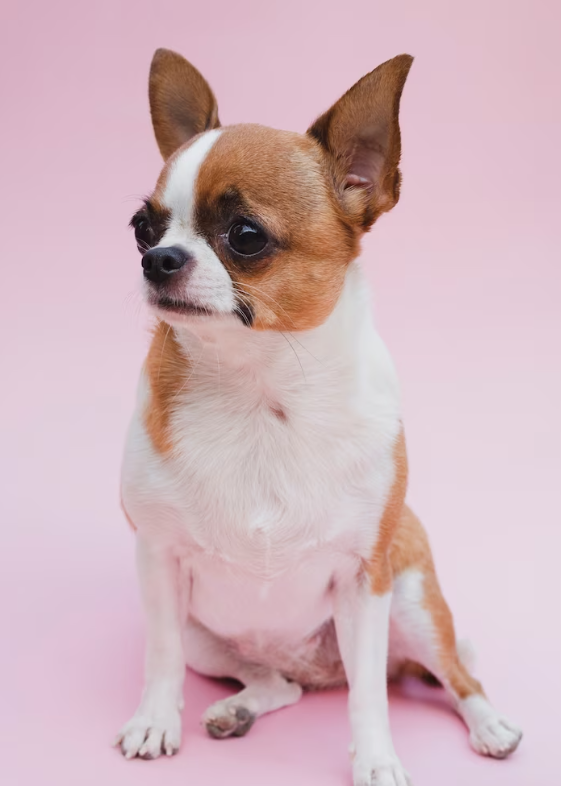
Health and Grooming Needs
General Health
Maintaining the overall health of a Chihuahua involves regular veterinary check-ups, vaccination schedules, and parasite prevention measures. A healthy diet, exercise, and mental stimulation are also important for their well-being.
Amount Of Shedding
Chihuahuas are moderate shedders. While their short coats are relatively easy to maintain, regular brushing can help minimize shedding and keep their coat in good condition.
Drooling Potential
Chihuahuas are not known for excessive drooling. They generally have dry mouths, which can be beneficial for those who prefer a cleaner environment.
Easy To Groom
Chihuahuas are generally easy to groom due to their small size and low-maintenance coats. Regular brushing, occasional baths, and nail trimming are usually sufficient to keep them looking their best.
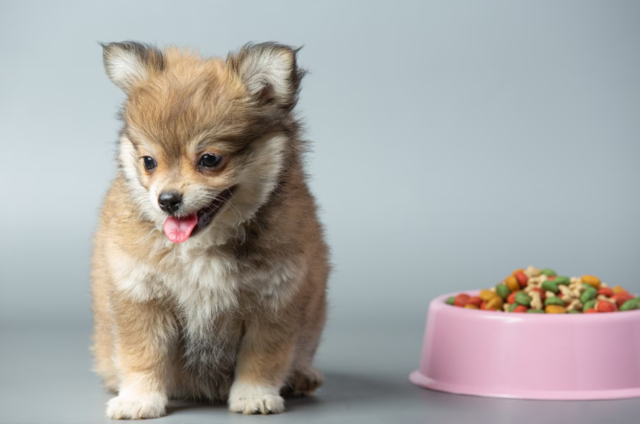
Potential For Weight Gain
Chihuahuas can be prone to weight gain if not provided with a balanced diet and regular exercise. It’s important to monitor their food intake and engage them in appropriate physical activities to prevent obesity.
Exercise Needs
Energy Level
Chihuahuas have moderate energy levels. While they enjoy short bursts of activity, they are also content with indoor playtime and daily walks.
Intensity
Chihuahuas do not typically require intense exercise. Their small size and energy levels can be met with regular walks, interactive play sessions, and mental stimulation.
Exercise Needs
Chihuahuas require daily exercise to maintain their physical and mental well-being. Engaging them in activities such as short walks, play sessions, and puzzle toys can help meet their exercise needs.
Potential For Playfulness
Chihuahuas are known to be playful and enjoy interactive games with their owners. Incorporating playtime into their daily routine can keep them mentally stimulated and happy.
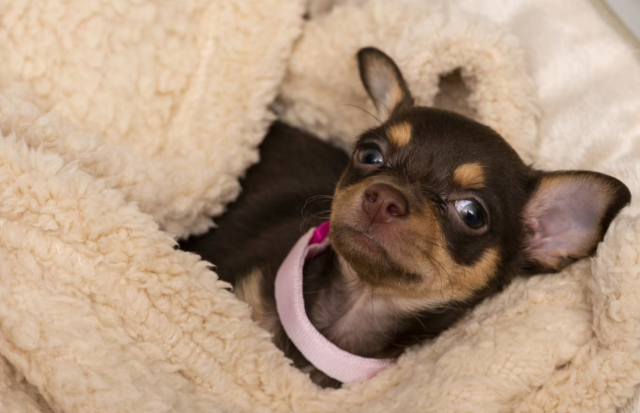
Breed Characteristics and Adaptability
Adaptability
Chihuahuas are highly adaptable dogs and can thrive in various living environments, including apartments. Due to their adaptive temperament and manageable size, they are typically a good choice for first-time owners.
Sensitivity Level
Chihuahuas can be sensitive dogs and may require gentle handling and positive reinforcement training methods. They can tolerate being alone for moderate periods but may become anxious or develop separation anxiety if left alone for extended periods.
All-around Friendliness
Chihuahuas have a reputation for showing attention to their family members. They can be kid-friendly and get along well with other dogs and strangers when properly socialized from an early age.
Size and Trainability
Size
Chihuahuas are one of the smallest dog breeds. Their small size makes them easily portable and suitable for people living in small spaces or those looking for a travel companion.
Trainability
Averagely intelligent, chihuahuas may be educated with patience, persistence, and positive reward. While they are generally eager to please, they may have a tendency to be stubborn at times.
Potential For Mouthiness
Chihuahuas, like many small breeds, may have a tendency to nip or mouth during play. Early socialization and appropriate training can help discourage this behavior.
Prey Drive
Chihuahuas generally have a low prey drive. However, it’s essential to supervise them around small animals or wildlife to ensure their safety and the safety of other creatures.
Tendency To Bark Or Howl
Chihuahuas are known for their tendency to bark. They are vigilant and may use barking as a means to communicate or express their emotions. Proper training and socialization can help manage excessive barking.
Wanderlust Potential
Chihuahuas may have moderate wanderlust potential. To keep them from straying or becoming lost, they should always be kept on a leash or inside of a properly secured space.
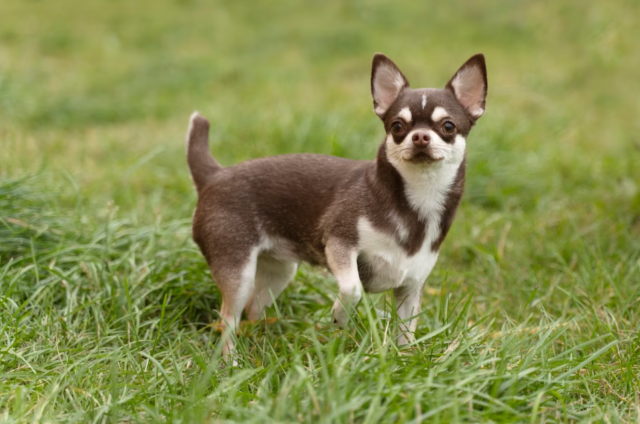
Caring for a Chihuahua
Chihuahua Health Issues
Chihuahuas can be prone to certain health issues. Some common health concerns include obesity, luxating patellas, periodontal disease, collapsing trachea, heart disease, hydrocephalus, eye problems, Legg-Calvé-Perthes disease, reproductive issues, and hypoglycemia. Regular veterinary care and awareness of these conditions can help ensure their well-being.
Feeding a Chihuahua
Proper nutrition is essential for a Chihuahua’s overall health. They should be fed premium dog food that satisfies their dietary requirements. Feeding schedules, portion control, and avoiding overfeeding are important to maintain a healthy weight.
Behavior and Training Tips for Chihuahua
Understanding Chihuahua’s personality and temperament is crucial for successful training. Although clever, they may display stubbornness. Positive reinforcement training methods, consistency, and early socialization can help shape their behavior.
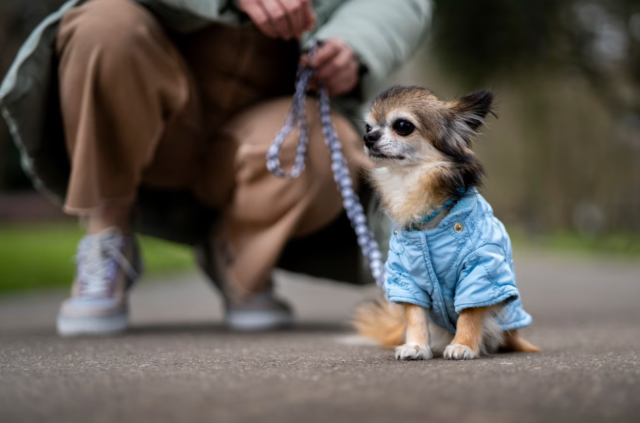
Chihuahua Grooming Guide
Proper grooming is important for a Chihuahua’s overall hygiene and appearance. Regular brushing, bathing as needed, and proper care for their eyes and ears are essential. Pet parents should also consider factors like seasonal shedding and climate when grooming their Chihuahuas.
Considerations for Pet Parents
As a pet parent, it’s important to provide a safe and loving environment for your Chihuahua. This includes creating a comfortable living space, regular exercise, and mental stimulation, proper nutrition, routine vet visits, and lots of affection and attention.
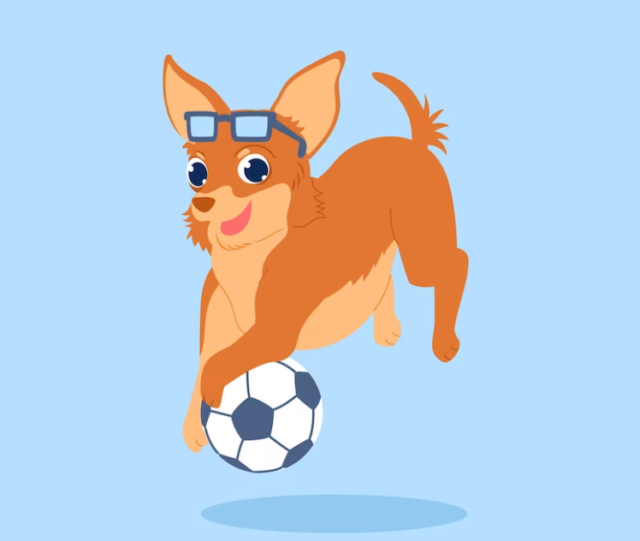
Chihuahua Fun Facts
- Chihuahuas are named after the Mexican state of Chihuahua, where they were discovered.
- They are among the continent’s oldest dog breeds.
- Chihuahuas have a wide range of coat colors and patterns, including solid, marked, and splashed varieties.
- Chihuahuas are often seen in the company of celebrities and have gained popularity as fashionable pets.
- They have been known to have a longer lifespan compared to other dog breeds, with some Chihuahuas living up to 20 years or more.
Exploring the Different Types of Chihuahuas
Apple Head Chihuahua:
The Apple Head Chihuahua is perhaps the most well-known type. As the name suggests, this variety has a rounded skull shape resembling an apple. They typically have a shorter snout, large round eyes, and a shorter neck. Compared to other breeds, Apple Head Chihuahuas are often bigger in stature, and they can be either confident and gregarious or shy and reserved in disposition.
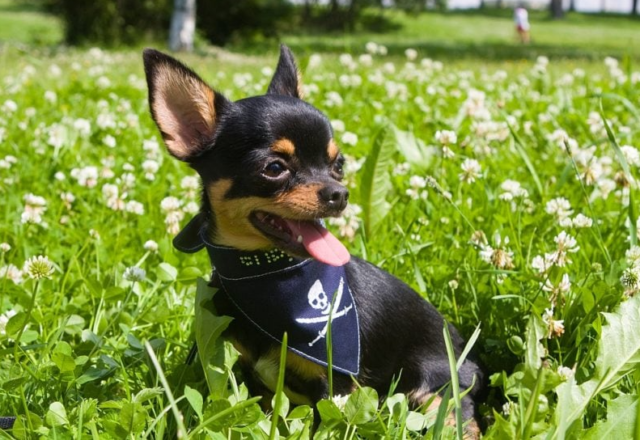
Deer Head Chihuahua:
The Deer Head Chihuahua gets its name from its deer-like facial structure, which is more elongated and less rounded compared to the Apple Head variety. These Chihuahuas usually have a longer snout, taller ears, and a more prominent neck. Deer Head Chihuahuas come in a range of sizes and can exhibit diverse temperaments, including being affectionate, intelligent, and lively companions.
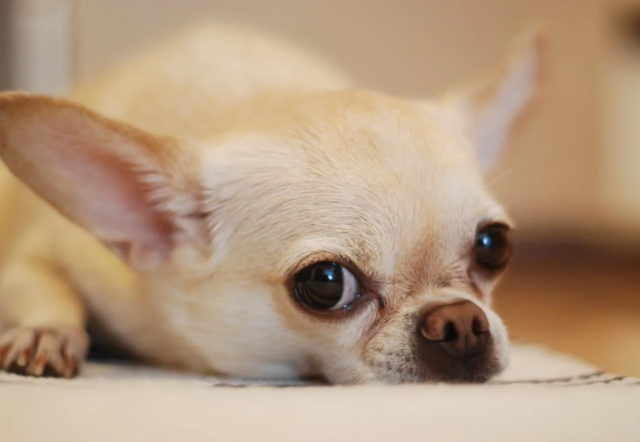
Long Coat Chihuahua:
Long Coat Chihuahuas have a luxurious, flowing coats. They possess long, silky hair that requires regular grooming and maintenance. This type is often seen in both Apple Head and Deer Head varieties. Long Coat Chihuahuas tend to have a sweet and affectionate temperament and make wonderful lap dogs and family pets.
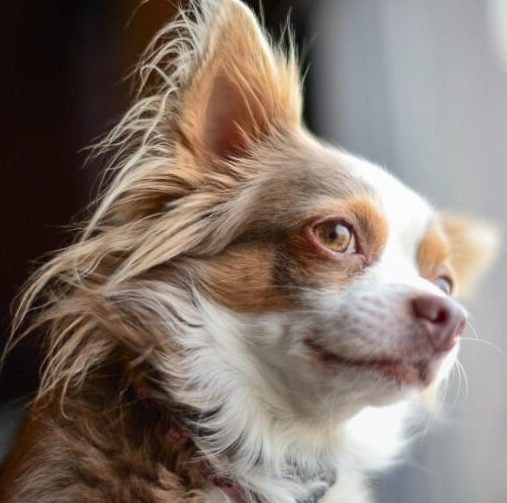
Short Coat Chihuahua:
The Short Coat Chihuahua, also known as Smooth Coat Chihuahua, is the variety with a shorter and sleeker coat. When it comes to grooming, this breed of Chihuahua is minimal maintenance and is renowned for its easy-care coat. Short Coat Chihuahuas are energetic, alert, and have a spunky personality. They are excellent companions for individuals or families looking for an active and playful small dog.
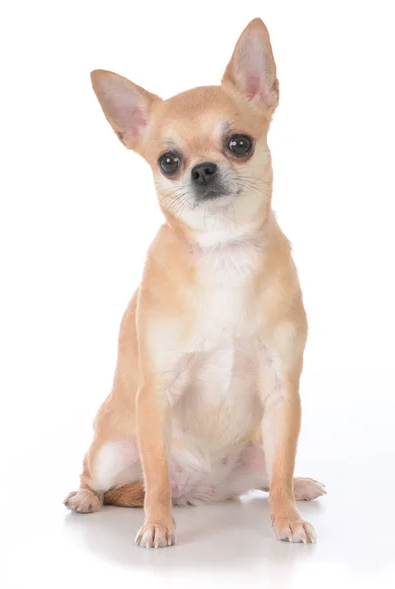
Teacup Chihuahua:
Teacup Chihuahuas are not a distinct breed but rather a term used to describe extremely small Chihuahuas. They are typically smaller than the standard Chihuahua size and weigh between 2 to 4 pounds. Due to their delicate size, Teacup Chihuahuas require extra care and attention to ensure their well-being. It is important to note that their small stature can also lead to certain health issues.
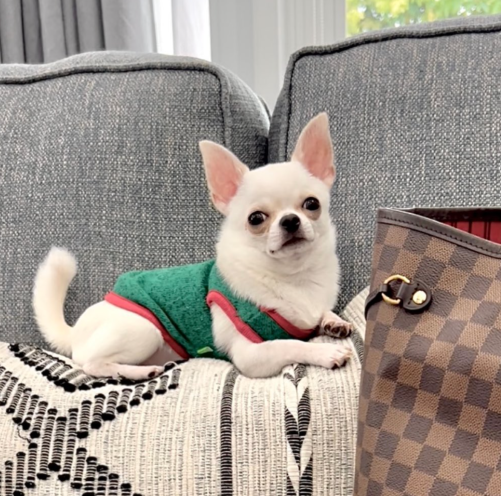
Conclusion
Chihuahuas are unique and charismatic little dogs that bring joy and companionship to many households. Their small size, lively personality, and adaptability make them a popular choice for pet lovers. However, it’s important to understand their specific needs, including health care, grooming, training, and socialization. By providing proper care and love, Chihuahuas can thrive and become cherished members of the family.
Must-Have Items to Care for Your Chihuahua
FAQs
Q1: Are Chihuahuas good with children?
Chihuahuas can be good with children if they are properly socialized from a young age and children are taught how to interact with small dogs gently and respectfully.
Q2: Do Chihuahuas require a lot of exercise?
While Chihuahuas have moderate exercise needs, daily walks, and interactive playtime are usually sufficient to keep them healthy and happy.
Q3: Are Chihuahuas prone to dental problems?
Yes, Chihuahuas are prone to dental issues, such as tooth decay and gum disease. Their oral health may be preserved with routine dental care, such as cleaning their teeth and giving them dental chews.
Q4: Can Chihuahuas be trained easily?
Chihuahuas can be trained, but they may have a stubborn streak. Successful training requires patience, consistency, and reinforcement of positive behavior.
Q5: Do Chihuahuas get along well with other pets?
With proper socialization, Chihuahuas can get along well with other pets. Early introductions and supervised interactions are important to ensure positive relationships.
Q6: How often should I groom my Chihuahua?
The grooming needs of Chihuahuas vary depending on their coat type. Generally, regular brushing, occasional baths, and nail trimming are sufficient to keep them well-groomed.
Read also
- Unleashing the Wonders of Cujo Dog Breed | Discover Their Unruly Nature
- Best Dog Food for Puppies: Meeting the Nutritional Needs of Large Breeds
- Swim with Confidence: Discover the Best Dog Life Jackets Today!
- Homemade Dog Food Recipe: Happy Tail-Wagging Guaranteed!
- Discover Why Dogs Chew on Their Paws: Common Causes and Effective Solutions
- Unleash the Best Dog Food for Chihuahuas | A Guide for Optimal Nutrition
- Why Is My Dog Barking at Nothing?: Unraveling the Mystery
- Unveiling the Alluring Sandlot Dog Breed: A Perfect Blend of Charm and Playfulness
- Dog Muzzle for Barking: Control Excessive Noise with Effective Muzzles
- Types of Pitbulls: A Comprehensive Guide
- Effective Strategies to Stop a Dog from Jumping Up on Strangers
- Discover the Benefits of High Protein Dog Food for Optimal Canine Health
- Choose the Best Dog Food for Your Picky Eaters Needs
- 5 Foolproof Steps to Master Puppy Crate Training
- Discover the Versatile Mountain Cur Dog Breed | All You Need to Know
- Lion Dog Breed: A Perfect Blend of Beauty and Grace
- Dog Dental Chart: A Comprehensive Guide to Your Dog’s Dental Health
- Unlock Duck Hunting Secrets: Most Effective Dog Breeds
- Find the Best Dog Food for Your German Shepherd
- Dog First Aid: Essential Tips to Keep Your Furry Friend Safe and Healthy


